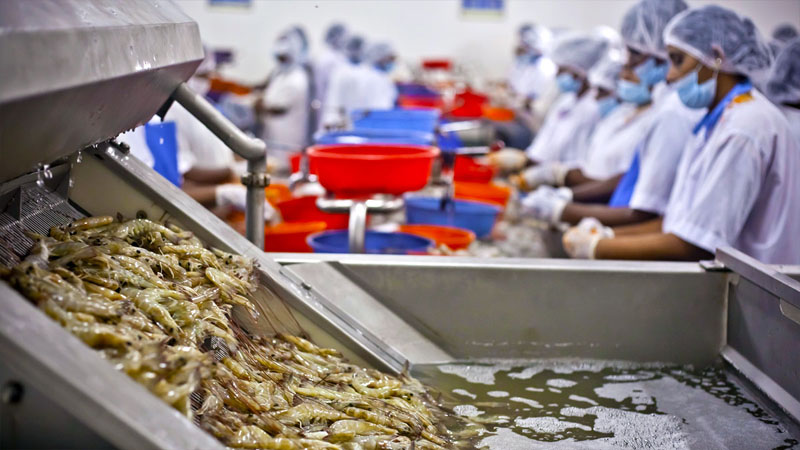Exclusive content

Indian shrimp exporters have recently found themselves embroiled in a controversy, as a foreign employee of Kerala-based Choice Canning alleged malpractices within the company’s operations. The subsequent fallout has raised concerns among US lawmakers and activists, prompting a call for action against Indian shrimp imports. In response, Indian exporters are seeking government support to address these allegations and safeguard their industry.
Challenges Facing Indian Shrimp Exporters
The Indian shrimp industry, valued at approximately USD 5.16 billion, faces significant challenges as allegations of product contamination and forced labor practices threaten to undermine its reputation in the global market. With the US being a key destination, accounting for 40% of India’s shrimp exports, the stakes are high for Indian exporters.
In light of the accusations levied against Indian shrimp exporters, stakeholders have appealed to the Indian government for assistance. During a recent meeting convened by the commerce ministry, exporters expressed their willingness to cooperate with independent international agencies to dispel any doubts regarding the quality and labor conditions within their facilities.
Confidence in Meeting Regulatory Standards
Indian shrimp exporters have emphasized their confidence in meeting the stringent standards set by regulatory authorities such as the US Food and Drugs Administration (FDA). They have reiterated their commitment to transparency and quality assurance, welcoming audits from national and international agencies to validate their compliance with regulations.
Recognizing the importance of addressing concerns surrounding product safety and labor practices, Indian exporters have urged government officials to facilitate engagements with internationally-recognized organizations. By proactively addressing these issues, exporters aim to reassure buyers and preserve the integrity of India’s shrimp industry.
Government’s Role in Oversight
The Indian government, through regulatory bodies such as the Marine Products Export Development Authority (MPEDA) and the Food Safety and Standards Authority of India (FSSAI), has been conducting regular audits to ensure adherence to quality and labor standards. Additionally, states like Andhra Pradesh, a major shrimp supplier to the US, have been alerted to remain vigilant in upholding industry standards.
In pursuit of enhancing the value of seafood exports, Indian exporters are focusing on value addition locally before shipping products to international markets like the US. By emphasizing quality over quantity and investing in branding and packaging, exporters aim to command higher prices and establish a stronger foothold in the global market.
Navigating Legal Challenges
The recent allegations, highlighted by whistleblower Joshua Farinella, have prompted legal action and diplomatic involvement. Choice Canning, the company implicated in the allegations, has refuted the accusations and is working with the Indian government to address the matter. US lawmakers have also intervened, urging swift action to safeguard American consumers.
Despite the challenges posed by the recent allegations, Indian shrimp exporters remain resilient in their pursuit of maintaining industry standards and meeting the demands of international markets. By fostering collaboration with regulatory authorities and adopting measures to enhance product quality, exporters are committed to upholding India’s reputation as a reliable supplier of high-quality shrimp.